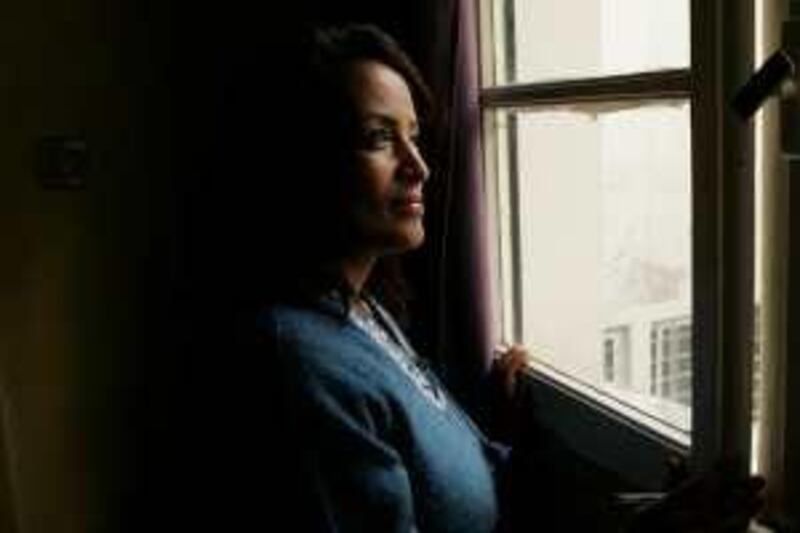CASABLANCA // Three times Brahim, newly infected with HIV, stood on railway tracks waiting for the end, and three times sprang back at the last minute. "Only because I was afraid that suicide was a sin," said Brahim, 25, who caught the virus three years ago through sexual intercourse. "It wasn't until I met other people with HIV who had marriages and babies that I actually regained hope." Brahim, who did not wish to give his surname, is not a typical HIV case in Morocco. A furniture maker, he embodies fears that the virus is spreading beyond the world of drugs and prostitution, where it is concentrated. That makes fighting the taboos surrounding HIV a key part of battling the virus. For many Moroccans, HIV carries an unsavoury whiff of loose morals, said Hakima Himmich, the president of the Association for the Fight against Aids. "When you live in a country where HIV can cost you your job, you don't get tested." Tests are increasingly important, said Dr Bradley Hersh, who heads the HIV/Aids Operational and Technical Support Unit at the World Health Organisation. Thirty-three million people are infected with HIV worldwide and the number is rising while the global financial crisis may limit the supply of affordable drugs. That is worrying news for such countries as Morocco, which rely heavily on foreign donors to fight HIV. For now, the country is maintaining a vigorous treatment and prevention programme. "When you consider Middle-Eastern and North African countries, Morocco is a bit ahead of the rest," said Dr Kamal Alami, the Morocco country officer for the UN's HIV/Aids programme, citing political will and co-ordination between the state and civil society. Only 22,700 of Morocco's 30 million people are known to have HIV, said Dr Aziza Benanni, who heads the Aids programme at Morocco's health ministry. Many are prostitutes and intravenous drug users, but officials worry that HIV is bleeding into the general population. "We don't have a vaccine we can inject, but people can be aware of HIV and change their behaviour," said Dr Hersh, of the World Health Organization. "Our best vaccine right now is education." Moroccan schoolchildren start learning about reproduction and sexually transmitted diseases at age 10, said Dr Wafa Benzaouia, who oversees the education ministry's student health programme. For a wider audience, the government has sponsored TV and radio spots that warn about HIV, while imams promote contraception at Morocco's state-controlled mosques. HIV treatment is free in the country's state hospitals. "But it's the NGOs [non-governmental organisations] that allow us to engage with sex workers and drug addicts," said Dr Benanni, from the health ministry. The government helps fund non-profit groups working against HIV and provides contraception to hand out at Morocco's beaches, music festivals and pickup spots. "Most sex workers have very little idea about Aids or even contraception," said Amal, an outreach worker for the Association for the Fight against Aids who did not wish to give her surname. At the organisation's office in Casablanca, 15 prostitutes are getting a lesson in safe sex. The room is bright and welcoming, with coloured posters on the wall and chairs arranged in a rough circle. "Every day we eat bread as a matter of course," said Dr Milouda Choukri, a sprightly counsellor. "Using protection should be the same - automatic." The women watch silently and attentively. Most wear demure headscarves and tubelike gowns - emblems of conservative values that health workers say help HIV spread by wrapping it in a fog of taboo. "Many people don't even dare to tell their families they've been infected," said Amina el Arabi, the president of the Association du Jour, a support group for HIV patients. Twice a week, dozens crowd into the association's cheery little office in central Casablanca to share couscous and discuss the hardships of living with HIV. Some store their pills there, lest family discover them at home. "We're all supposed to be one single Muslim community," said Abdelali, 33, who was deported home to Morocco from Libya last year after catching HIV. He did not wish to give his surname. "But unfortunately here in Morocco, most people don't accept those infected with HIV." Mrs el Arabi, the group's president, takes her story to local schools in an effort to combat the stigma. Like all of the association's members, she is HIV-positive. "I explain that I was once a student like them, that I have a son their age and that my HIV is not my fault." In 1999, Mrs el Arabi's husband unwittingly gave her HIV after becoming infected by sleeping with another woman. The couple stayed together and founded the association in 2006. For Abdelali, Mrs el Arabi and her husband are an inspiration. So is Brahim, no longer suicidal, who in January wed another HIV patient he met through the association. Abdelali is planning to get a taxi licence and is thinking about marriage. Every month he visits his doctor for a check-up. "I think a normal life is possible," he said. "But first I need to live." jthorne@thenational.ae
Morocco facing up to the reality of HIV/Aids
Only 22,700 of Morocco's 30 million people are known to have HIV, says Dr Aziza Benanni, who heads the Aids programme at Morocco's health ministry.

Editor's picks
More from the national




